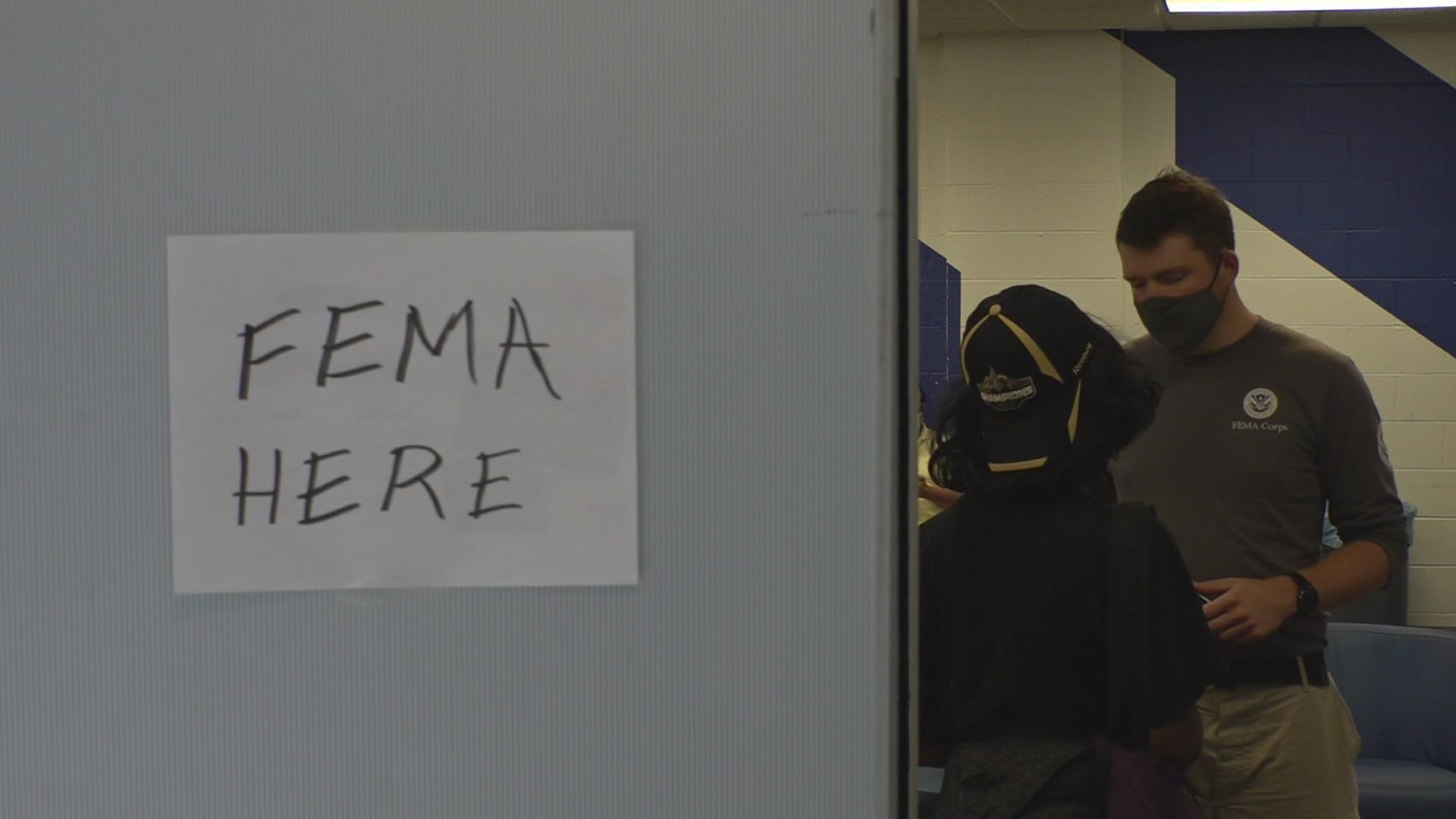NEW ORLEANS — It can be difficult and time consuming to apply for FEMA assistance. There can be long wait times on the phone, or maybe you're not familiar with how to apply online.
The U.S. Department of Homeland Security wants to make that process easier, especially in underserved communities.
When there's a disaster, it's churches like First Baptist in Golden Meadow or organizations like the Urban League of Louisiana that become a lifeline for people they know and serve.
“Our focus here at the Urban League of Louisiana has been to get resources and information into the hands of people most in need,” said Judy Reese Morse, President & CEO of Urban League of Louisiana.
Marcus Coleman is in town from the U.S. Department of Homeland Security to make sure there is a strong connection between FEMA and community non-profits and churches to help Hurricane Ida victims navigate the recovery process.
“Faith-based community groups, they're in communities first. They're in communities long after all the national attention leaves,” said Marcus Coleman, Director for the Department of Homeland Security Center for Faith-Based and Neighborhood Partnerships.
His team coordinates deploying FEMA workers to local events, so they assist people needing disaster relief.
“We also have a team of applicant services specialists that can help triage people that have specific issues with specific cases,” he added.
And this is a two-way partnership. His office also wants to know where the need is greatest.
“The communities that the urban league of Louisiana serves are in crisis already," Morse said. "I could be talking about Hurricane Ida just as easily as I could be talking about Monday. There's not much difference between the challenges that the communities we serve face."
Recovery takes a long time. Right now FEMA is working to get people housing, and has inspected 200,000 damaged homes so far.
"FEMA's provided $620 million in grants directly to people who've been affected. That money is helping people with temporary rental assistance, if they need to relocate, basic home repairs, so homeowners can continue to live in their home,” said John Mills, with FEMA External Affairs.
“One thing that's not lost on me and shouldn't be lost on the country, we're talking about multiple compounding disasters, and from a mental and emotional health perspective, it's very important that we continue to be there,” Coleman said.
And that could be for the weeks, months, even years that returning to normal could take.
They have set up a crisis line so if you need to talk to a mental health counselor, call 800-985-5990. It's available 24-hours a day.

